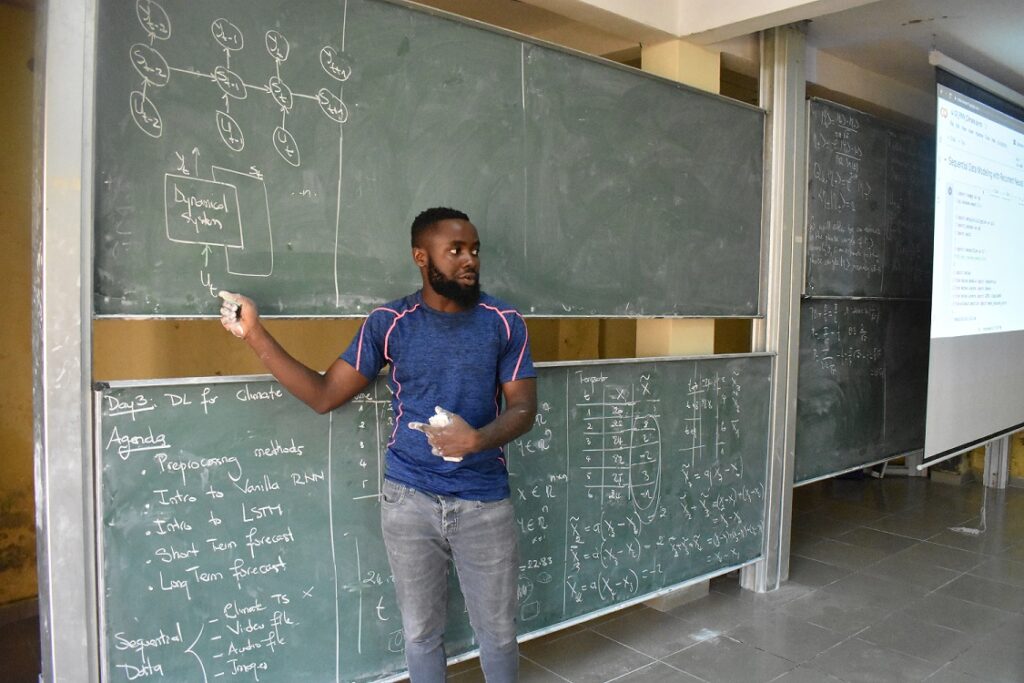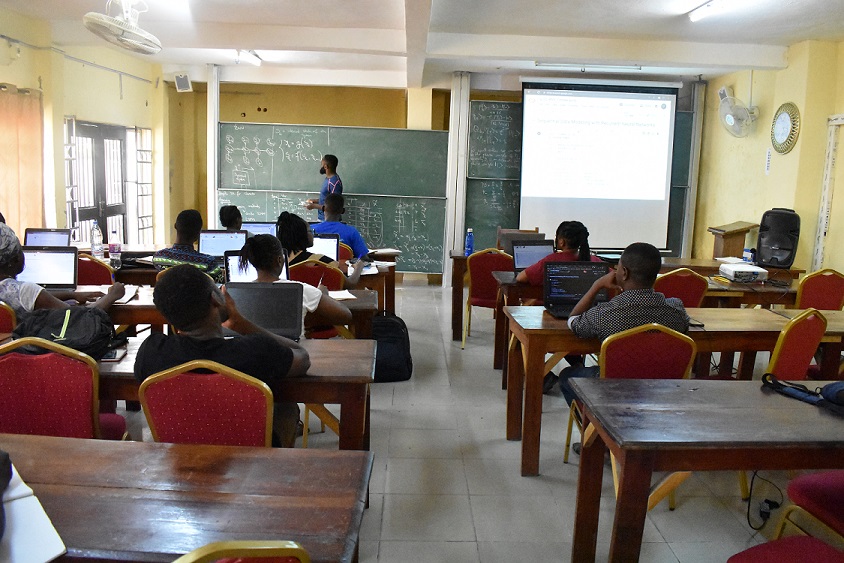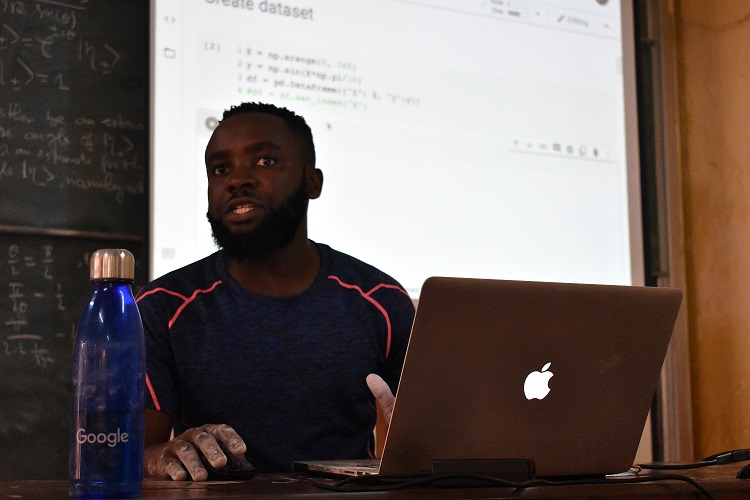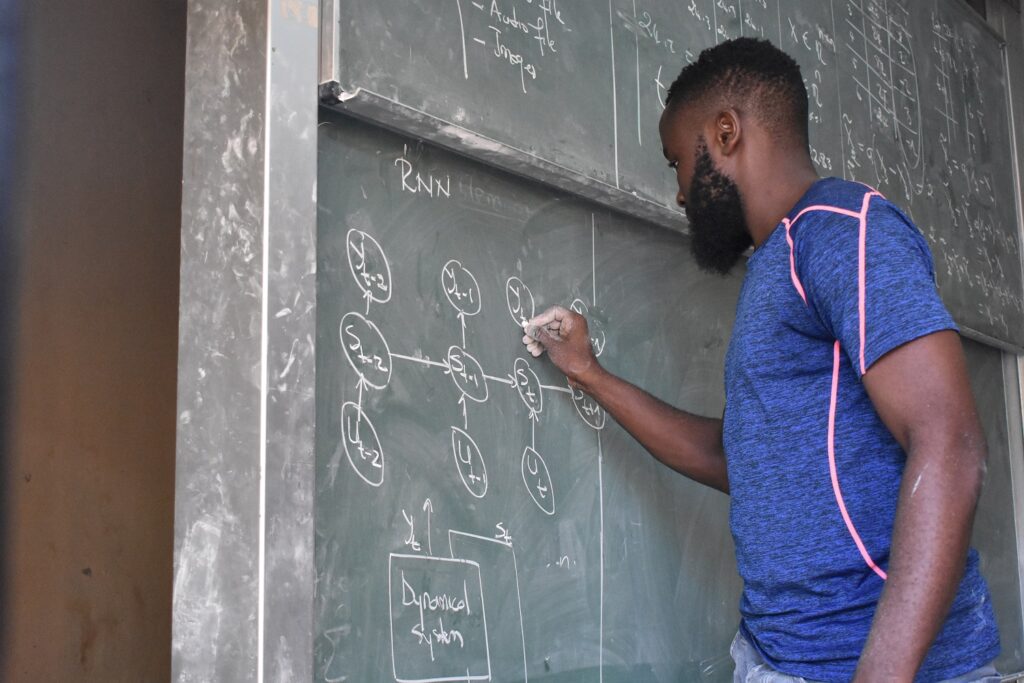AIMS Cameroon’s Climate Stream students last week received lectures during a Workshop facilitated by visiting South Africa-based Teaching Assistant Rockefeller on deep learning techniques for Climate-related data.
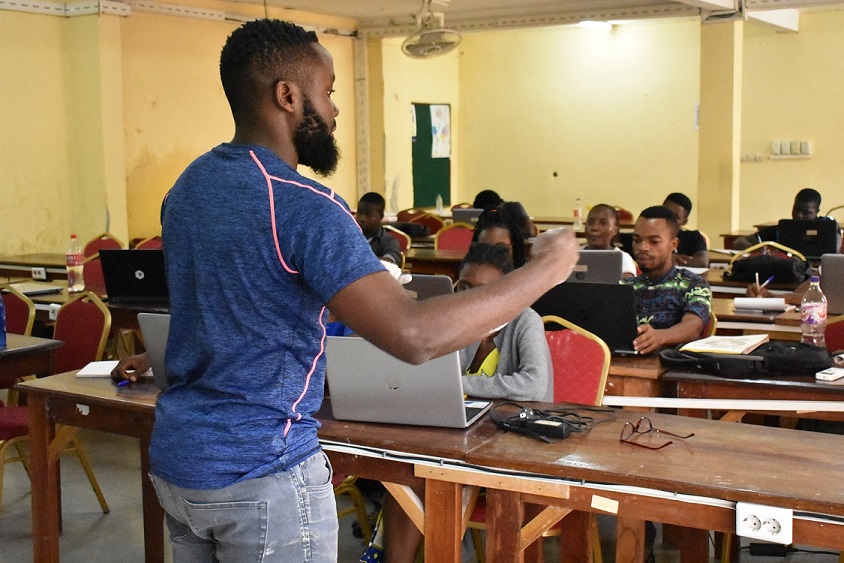
“Data-driven discovery is currently revolutionizing how we model, predict, and control complex systems like the climate around us. Increasingly, researchers are turning to data-driven approaches for a diverse range of complex systems, such as turbulence, the brain, climate, epidemiology, finance, robotics, and autonomy. These systems are typically nonlinear, dynamic, multi-scale in space and time, high-dimensional, with dominant underlying patterns that should be characterized and modeled for the eventual goal of sensing, prediction, estimation, and control,” introduced Rockefeller to explain the focus the workshop on Deep Learning techniques for climate related data.
Using data from NASA’s website on Limbe’s temperatures through satellite observation, Rockefeller demonstrated how to predict temperature values with Linear Preprocessing methods.
At the end of the workshop, the students acquired techniques on climate-related data acquisition; feature engineering and visualization of climate data as well as training deep learning models for (univariate and multivariate) time series forecasting.
As a bonus, Rockefeller discussed Historical Consistent Neural Networks to provide students with intuition on how to improve existing deep learning models in a mathematical sense.
Rockefeller is a Cameroonian-born AIMS Senegal alumnus and a Ph.D. Candidate at AIMS South Africa Research Center, under Stellenbosh University, South Africa. He is also a fellow in the AIMS Doctoral Training Program in Climate-related Sciences.
His research focuses on Artificial Intelligence Techniques Applied to Renewable Energy. “In a nutshell, I am trying to develop deep learning models to unveil patterns behind complex climate-related dynamical systems,” he explained.
Read more on: https://aims-cameroon.org/2021/04/15/rockefeller-equips-students-with-data-science-techniques/
#aimscmr

